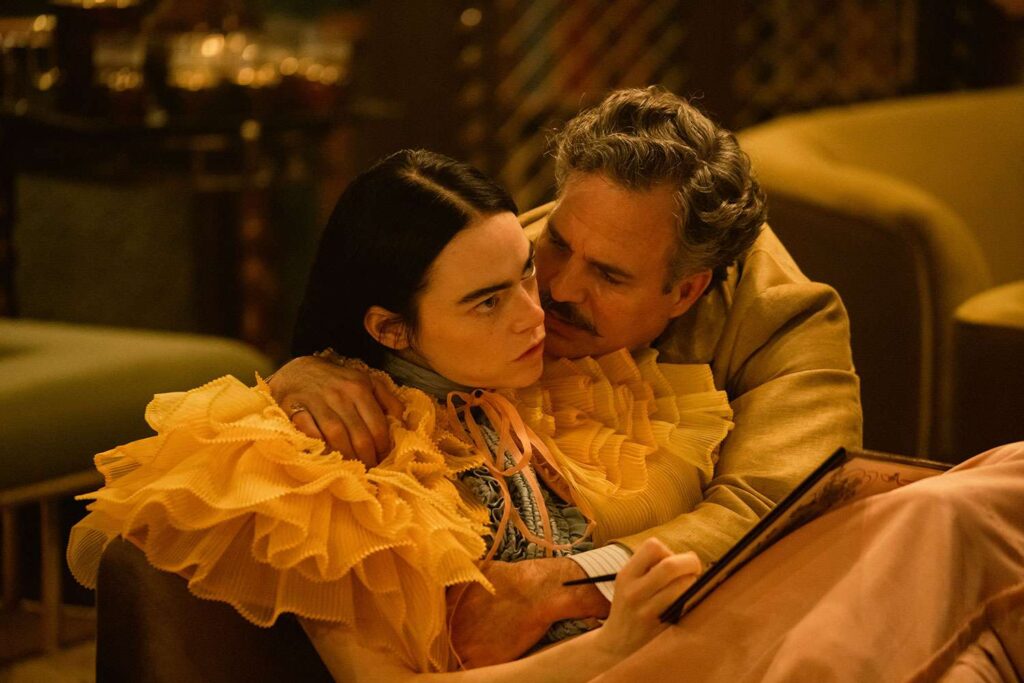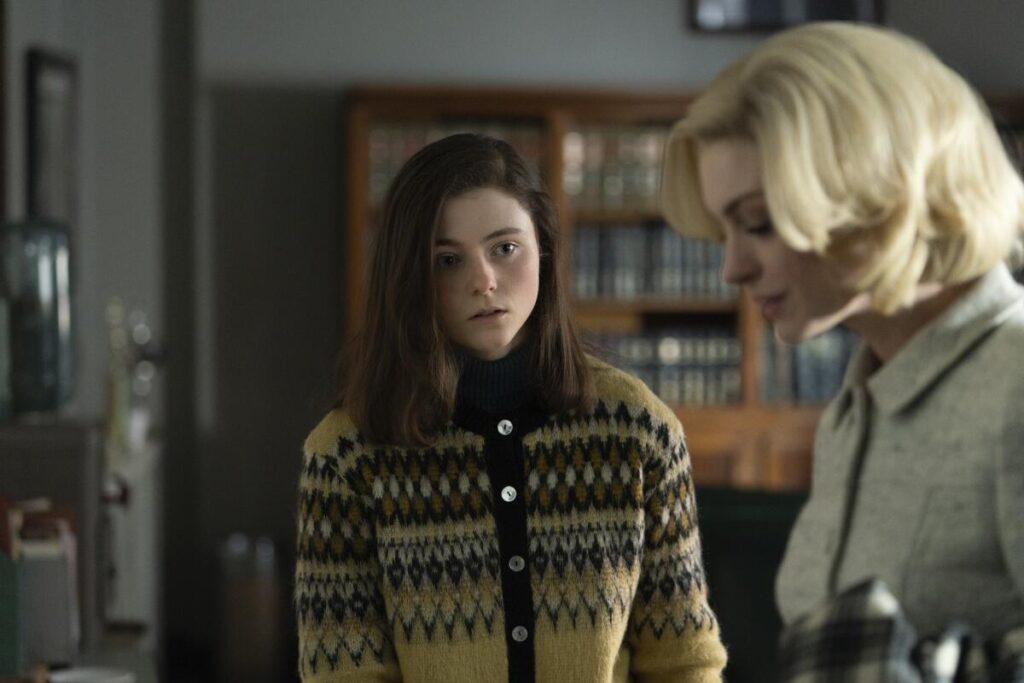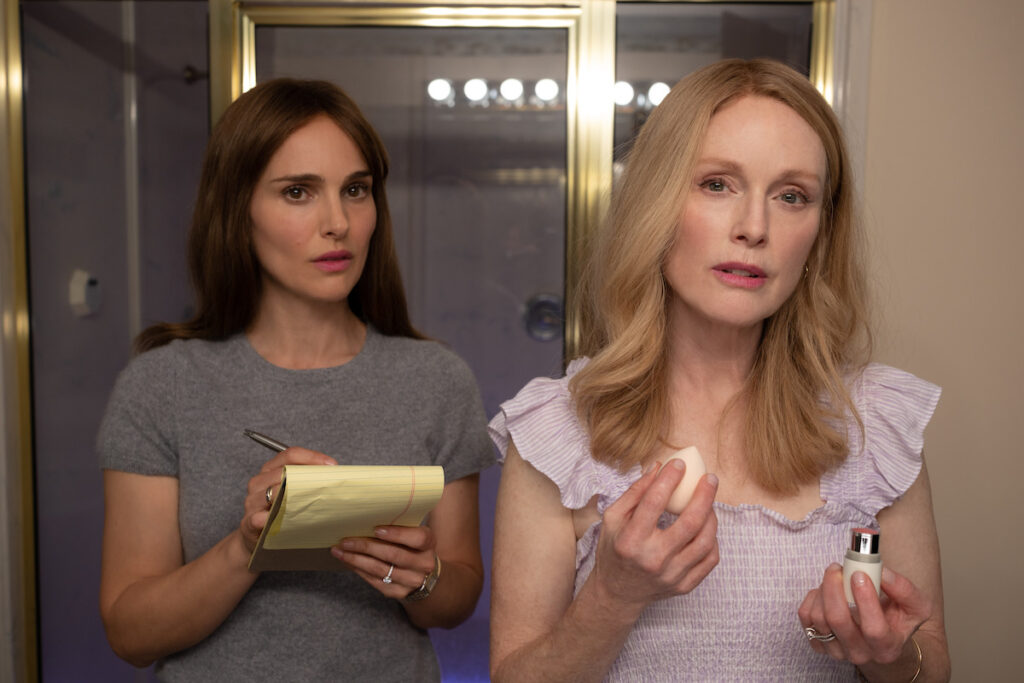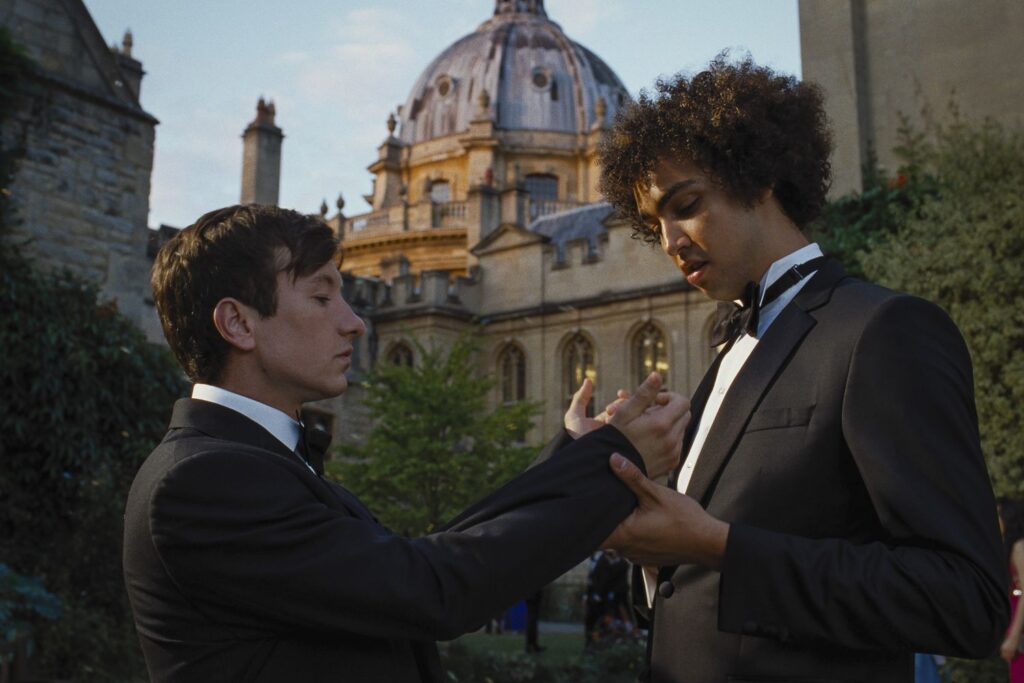Ferrari: Race for Impact
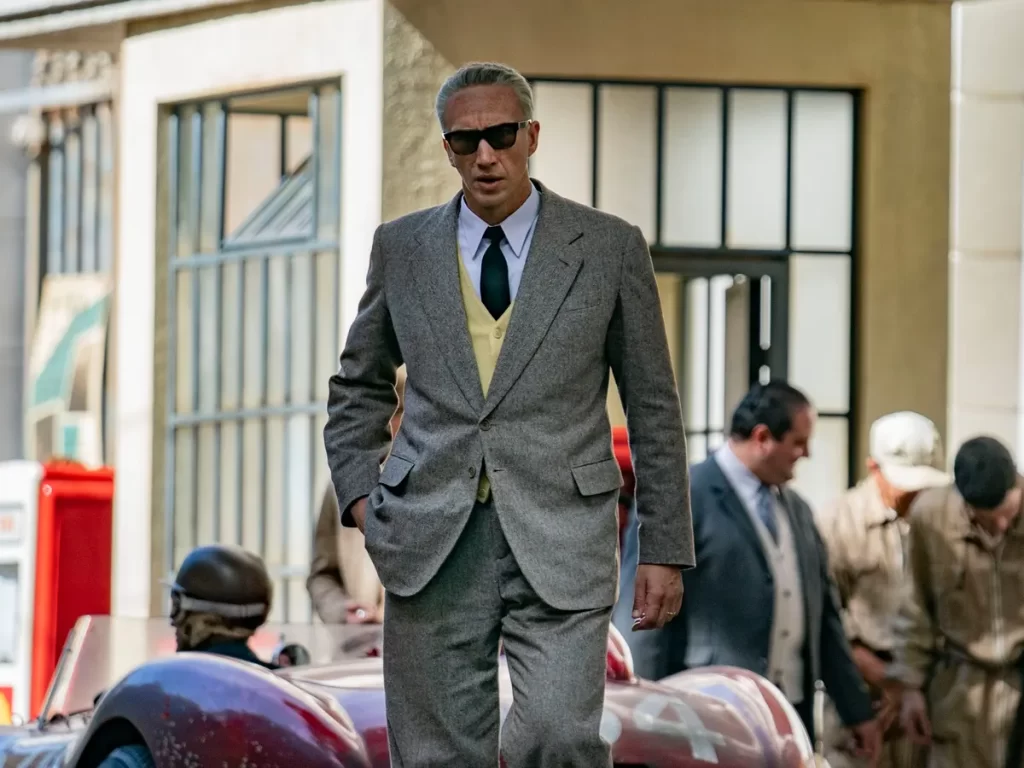
Is Michael Mann secretly a conventional filmmaker? The auteur is renowned for his bracing sense of style—the sleek digital photography, the dreamy music, the propulsive momentum—but he often wields his technique in the service of familiar, fact-based narratives. There’s nothing wrong with this; Ali is a solid sports movie, while the underrated Public Enemies bristles with an electricity that belies its stature as a docudrama. Now comes Ferrari, a serviceable picture that can’t help feeling disappointingly ordinary, lacking Ali’s personal depth and Public Enemies’ invigorating… well, drive.
To the movie’s credit, it unfolds over a narrow period of time, disdaining the swollen hagiography that afflicts so many biopics. The brunt of its action takes place in 1957, when Enzo Ferrari (Adam Driver) is facing a reckoning in both his personal and professional lives. On the home front, his already-strained marriage with his wife, Laura (Penélope Cruz)—still grieving the death of their son, who suffered from muscular dystrophy—is at risk of collapse, given that he’s struggling to continually conceal the existence of the boy he fathered during World War II with his mistress, Lina Lardi (Shailene Woodley). And in his business, he’s receiving reports of unprofitability and a corresponding erosion of the Ferrari brand—a diminution he hopes to reverse by winning the Mille Miglia, a race that (in case your grasp of Italian is even worse than mine) runs 1,000 stressful miles and carves through the country’s public roadways. Read More

